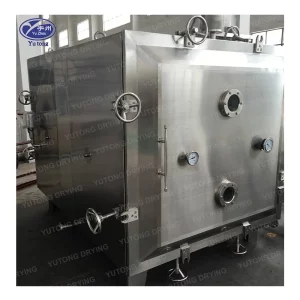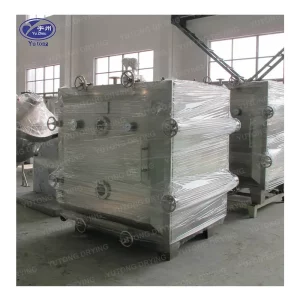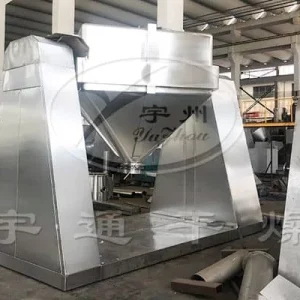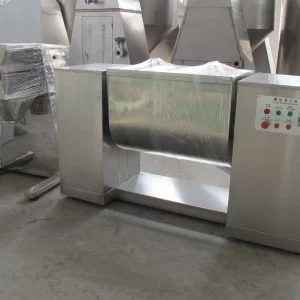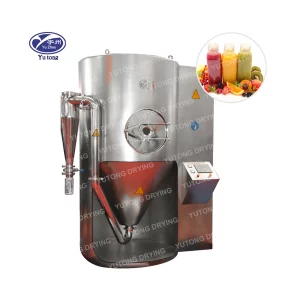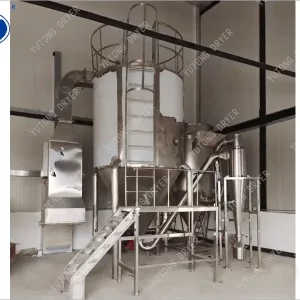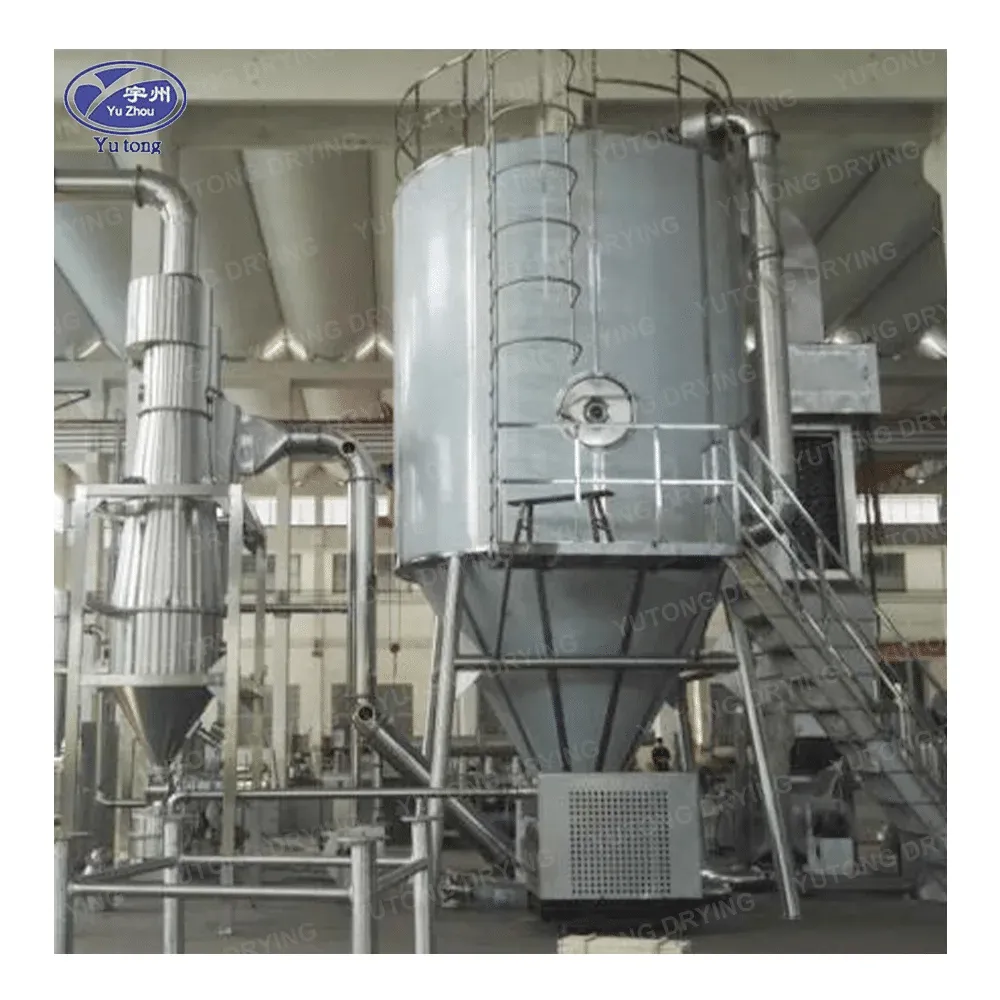Vacuum dryers are specialized pieces of equipment that have found extensive use in various industries due to their unique capabilities and advantages. These dryers operate by creating a reduced pressure environment inside a drying chamber, which accelerates the removal of moisture from materials.
Applications of Vacuum Dryers
1. Pharmaceuticals
In the pharmaceutical industry, vacuum dryers play a crucial role in the production of drugs and active pharmaceutical ingredients (APIs). Many pharmaceuticals are heat-sensitive and can be damaged by high temperatures. Vacuum drying allows for the removal of moisture at lower temperatures, preserving the integrity and efficacy of these sensitive materials. For example, vaccines, enzymes, and certain antibiotics are often dried using vacuum dryers to ensure their stability and prolong their shelf life. Vacuum drying is also used to remove residual solvents from drug formulations, which is essential for meeting regulatory requirements and ensuring patient safety.
2. Food Industry
The food industry makes extensive use of vacuum dryers to preserve the quality and nutritional value of various food products. Fruits, vegetables, and herbs can be vacuum-dried to remove moisture and extend their shelf life. Vacuum-dried foods retain their flavor, color, and nutritional content better than those dried using traditional methods. Additionally, vacuum drying is used to produce instant foods such as coffee, tea, and soups. The low moisture content achieved through vacuum drying makes these products more stable and easier to store and transport. For example, vacuum-dried fruits are popular as healthy snacks and can be added to cereals, yogurts, and baked goods.
3. Chemical Industry
In the chemical industry, vacuum dryers are used to dry specialty chemicals, pigments, and catalysts. The precise control over temperature and pressure offered by vacuum dryers is essential for producing high-quality chemicals with specific properties. Vacuum drying can also be used to remove residual solvents from chemical formulations, ensuring product purity and safety. For example, in the production of high-performance pigments for the paint and coatings industry, vacuum drying is used to achieve the desired color intensity and stability.
4. Electronics Industry
The electronics industry relies on vacuum dryers to remove moisture from sensitive electronic components such as printed circuit boards (PCBs), semiconductor devices, and connectors. Moisture can cause corrosion and electrical failures, so it is crucial to ensure that these components are completely dry before use. Vacuum drying provides a reliable and efficient method for achieving the required low moisture levels. For example, vacuum drying is used in the production of smartphones, tablets, and other electronic devices to ensure their reliability and performance.
5. Materials Science
In materials science, vacuum dryers are used to prepare materials for further processing or analysis. For example, vacuum drying is used to dry powders, nanoparticles, and thin films. The low-temperature drying process helps to prevent damage to these delicate materials and ensures that they retain their desired properties. Additionally, vacuum drying can be used to remove moisture from materials before they are used in composite materials or other applications where moisture can affect the performance of the final product. For example, in the production of advanced ceramics and composites, vacuum drying is used to ensure the homogeneity and quality of the final product.
Advantages of Vacuum Dryers
1. Preservation of Product Quality
One of the main advantages of vacuum dryers is their ability to preserve the quality of the dried product. By operating at lower temperatures, vacuum dryers reduce the risk of heat damage to heat-sensitive materials. This is particularly important in industries such as pharmaceuticals and food, where product quality and integrity are critical. For example, vacuum-dried pharmaceuticals retain their activity and stability, while vacuum-dried foods retain their flavor, color, and nutritional value.
2. Enhanced Drying Efficiency
The reduced pressure environment in vacuum dryers lowers the boiling point of water and other volatile substances, allowing moisture to evaporate more quickly. This results in shorter drying times and increased productivity. Additionally, the lower pressure helps to remove moisture more thoroughly, leading to a lower final moisture content in the dried product. This is important for many applications where moisture can cause spoilage, degradation, or reduced performance.
3. Improved Process Control
Vacuum dryers offer precise control over temperature, pressure, and drying time. This allows operators to optimize the drying process for specific materials and achieve consistent results. For example, in the pharmaceutical industry, strict control over drying parameters is essential for ensuring the quality and efficacy of drugs. Vacuum dryers can be programmed to follow specific drying profiles, ensuring that the product is dried to the desired moisture content without over-drying or under-drying.
4. Reduced Energy Consumption
Since vacuum dryers operate at lower temperatures, they consume less energy than traditional drying methods. Additionally, the reduced pressure environment helps to reduce the amount of energy needed to remove moisture. This can lead to significant cost savings over time, especially for large-scale industrial applications. For example, in the food industry, vacuum drying can reduce energy consumption by up to 50% compared to traditional drying methods.
5. Ability to Handle Difficult Materials
Vacuum dryers are particularly useful for drying materials that are difficult to dry using traditional methods. Materials with high moisture content, viscous or sticky substances, and materials that are prone to oxidation or degradation can be effectively dried using vacuum dryers. The reduced pressure environment helps to prevent oxidation and degradation, while also facilitating the removal of moisture from these challenging materials. For example, in the chemical industry, vacuum drying is used to dry specialty chemicals that are sensitive to air and moisture.
In conclusion, vacuum dryers offer a wide range of applications and advantages in various industries. Their ability to preserve product quality, enhance drying efficiency, improve process control, reduce energy consumption, and handle difficult materials makes them an essential tool for many manufacturing processes. As technology continues to advance, vacuum dryers are likely to become even more efficient and versatile, further expanding their applications in different sectors.

